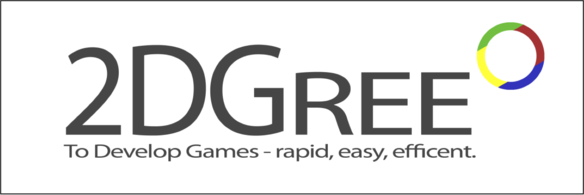2DGree
To develop games in a rapid, easy and efficient way is the goal of the 2DGree game protoyping framework which was developmed at the Interactive Systems Group. The framework supports game designers who are in the need of rapid game prototyping tools to test their ideas in early project stages as well as interested gamers who like to play around with their ideas and bring them to life. Methods of visual programming and programming by demonstration are used to lower the entrance barrier for novice users.
The 2DGree platform consists of a game world editor, a script and logic editor and a marketplace for game components. The game world editor enables the player to create his own game world and level designs with different types of textures, objects and sensors. The sensors are visual representations of triggers which are connected to game events and scripts. Furthermore, the game world editor offers a play mode which enables user’s to test their changes of the game prototypes immediately within the same environment. Whereas less complex scripts and events can be implemented with the tools within the game world editor, more complex scripts will be developed within the script and logic editor. This component offers visual programming interfaces to generate IF-THEN clauses by using drag-and-drop components and pre-defined game logic components. Last but not least, the framework offers a social network platform where users will be able to create development teams, share knowledge and trade their own creations. Via the marketplace of the platform users can share and trade graphical game objects, as well as logical components and entire games they’ve created.




